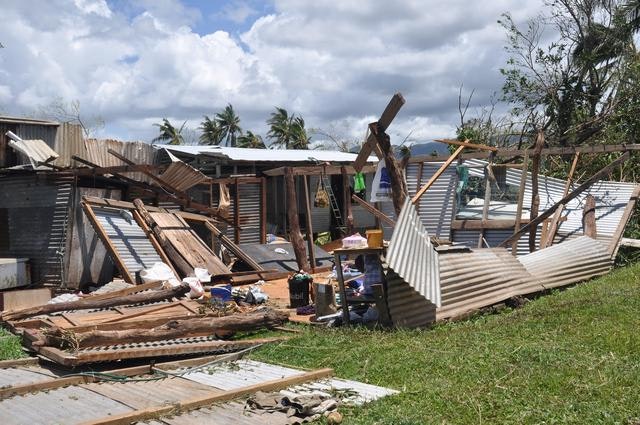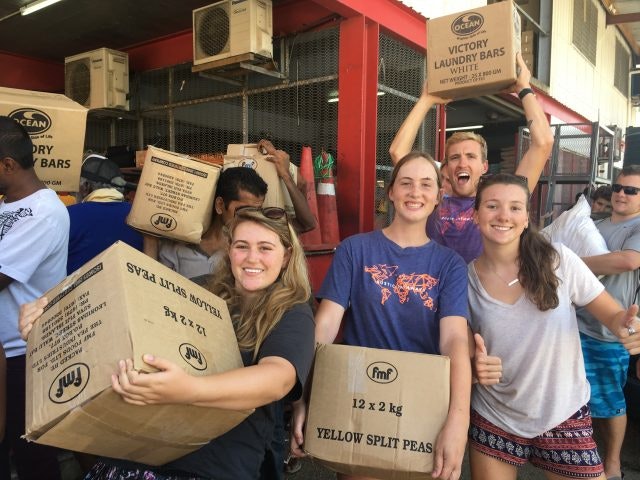







Cyclone Winston was the strongest storm ever recorded in the Southern Hemisphere and struck the Fiji Islands on February 20, 2016. With wind speeds exceeding 145 mph, Winston caused widespread devastation across the archipelago.
This storm, part of a series of tropical cyclones, was one of the worst natural disasters to ever affect the island nation. It moved across the region, causing severe damage in its wake, particularly in the northern and western areas of Fiji, leaving families and communities struggling with its aftermath.
The storm left a profound impact on the islands of Fiji, destroying homes, schools, and farmland. In affected communities like Somosomo and Nasivikoso, entire villages were wiped out, with families losing their homes and livelihoods.
The agricultural sector took a huge blow, with crops destroyed and food security threatened. Recovery from such losses would take years, particularly in rural areas where rebuilding efforts were slow. The loss of infrastructure such as schools and community centers added to the hardships faced by these remote communities.

(Image credit: Ponipate/IFRC via REUTERS)
In the wake of Cyclone Winston, the Fijian government took decisive action to coordinate recovery efforts. Working alongside international development organizations, the government provided relief supplies and resources to affected areas. The Fijian government’s focus was not only on rebuilding homes and schools but also on addressing the mental health needs of survivors. Programs offering counseling and psychological treatment became crucial to helping communities recover emotionally. These efforts were especially important given the psychological toll the disaster had on the nation.
Here are some of Fiji’s recovery partners and their roles
| Organization | Role in Recovery | Contribution |
|---|---|---|
| Rustic Pathways | Fundraising, relief supplies, and school rebuilding efforts | Raised funds, distributed supplies, and installed toilets. |
| Fijian Government | Coordinated national recovery efforts | Led the disaster response and rebuilding strategies. |
| Australian Government | Provided technical support and supplies | Delivered aid and helped with infrastructure projects. |
| Non-Governmental Organizations (NGOs) | Mental health support, long-term recovery projects | Offered counseling services and assistance in rebuilding efforts. |
 The mental health impact of Cyclone Winston was profound. Many survivors experienced depression, anxiety, and post-traumatic stress disorder (PTSD) as they struggled to rebuild their lives. In communities where the storm’s winds and tornadic activity caused physical destruction, access to mental health support became critical. The Fijian government, in collaboration with international partners, took steps to ensure that affected individuals had access to counseling and mental health treatment. Recovery was not just about rebuilding homes but also about healing the emotional scars left by the disaster.
The mental health impact of Cyclone Winston was profound. Many survivors experienced depression, anxiety, and post-traumatic stress disorder (PTSD) as they struggled to rebuild their lives. In communities where the storm’s winds and tornadic activity caused physical destruction, access to mental health support became critical. The Fijian government, in collaboration with international partners, took steps to ensure that affected individuals had access to counseling and mental health treatment. Recovery was not just about rebuilding homes but also about healing the emotional scars left by the disaster.
As the one-year anniversary of Cyclone Winston approached, many in Fiji reflected on both the progress made and the ongoing challenges. The physical landscape had been reshaped by the storm, with areas like Koro Island still dealing with the aftermath of the devastation. Rebuilding efforts were far from complete, particularly in small island communities where access to resources remained limited. Yet, hope remained, fueled by the resilience of the Fijian people and continued international aid, including support from Australia and other countries.

One of the most pressing concerns for the recovery process was restoring agriculture. With much of the farmland destroyed, food security remained an issue for many communities. Efforts to replant crops and restore farming practices were slow, and it could take years for the agricultural systems to fully recover. The rebuilding of schools, community centers, and homes also continued, with local and international organizations leading efforts to provide necessary materials and support
Efforts to recover from Cyclone Winston have focused on key areas, including:
While Fiji continues to rebuild, the lessons learned from Cyclone Winston have led to greater efforts to improve resilience against future tropical cyclones. Efforts are now focused on strengthening infrastructure, improving disaster preparedness, and building community resilience to better withstand the next storm. The year-long recovery process has shown the importance of international collaboration, as well as the determination of the Fijian people, in facing such a massive disaster.
International organizations, including groups from Australia and Switzerland, provided critical aid following Cyclone Winston. Donations, supplies, and technical expertise helped to address both immediate and long-term recovery needs. These organizations worked with the Fijian government to ensure that communities, especially on remote islands like Koro Island, received the support they needed. From food deliveries to infrastructure projects, international partnerships were essential in helping Fiji recover from the worst natural disaster in its history.


Learn more about Rustic Pathways programs in the Fiji islands and the long-term relationships we partner with.
Read more: Everything You Need to Know About Traveling to Fiji